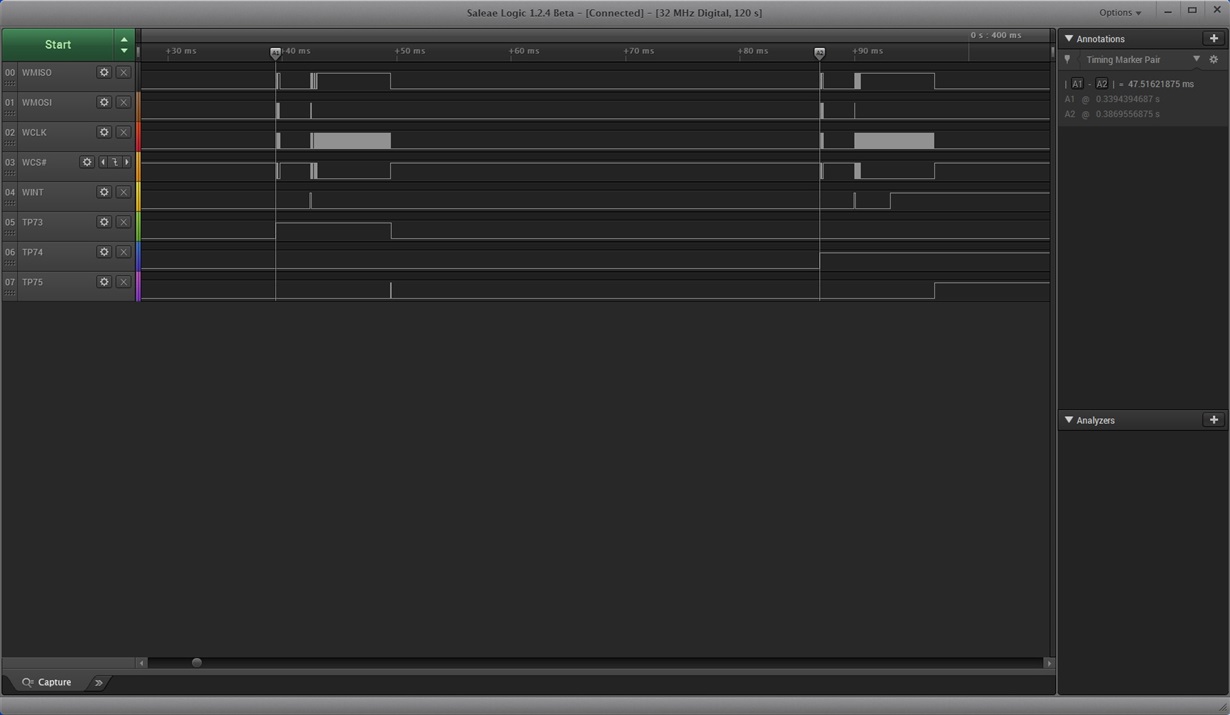I'm looking at running the simplelink driver in a non-interrupt based environment. Specifically, it will run in a bootloader, which does not use any interrupts. It looks to me like I could simply poll the cc3100 Host Interrupt line at the beginning of _SlNonOsMainLoopTask() and call _SlDrvRxIrqHandler() when the interrupt line is asserted. Is there any downside to doing it this way, or can someone suggest a better way?
-
Ask a related question
What is a related question?A related question is a question created from another question. When the related question is created, it will be automatically linked to the original question.



